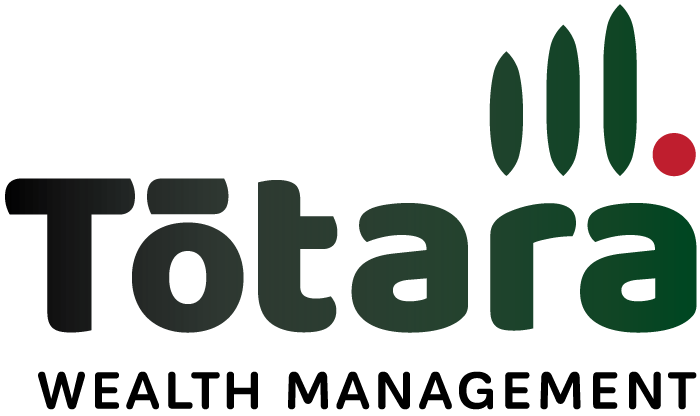World equity markets — despite a setback at the outbreak of acute tensions over North Korea — have continued to make progress as the world economy continues to improve, particularly in the eurozone and Japan, and building on ongoing growth in the United States. Bond markets have also been encouraged by signs that central banks are being very careful about working interest rates up from previously very low levels. The main challenge is valuations, which remain expensive across many asset classes, and which do not appear to be making appropriate allowance for geopolitical or other risks. The New Zealand economy has continued to do well, but it is becoming harder for corporates to generate profit growth as late-cycle cost increases kick in.
New Zealand Cash & Fixed Interest
Short-term interest rates are yet again unchanged, reflecting the unchanged stance of monetary policy: The Reserve Bank of New Zealand left the official cash rate at 1.75% at its August 10 meeting, and the 90-day bill yield continues to trade at just under 2%. The RBNZ was clear that it is contemplating no change in policy for some time and its forecast track for the OCR shows it being held at 1.75% all the way out to late 2019. The futures market is pricing in a 0.25% increase in the OCR a full year earlier than the bank anticipates, in late 2018. But either way investors are likely to see little near-term change in short-term interest rates. Longer-term bond yields have continued to track the evolution of the U.S. bond market, falling in line with U.S. yields as the ‘Trump trade’ wore off, and stabilising in recent weeks, with the local 10-year government bond yielding 2.9%. The New Zealand dollar is marginally (-0.7%) weaker for the year in overall trade-weighted value.
Property
Year to date the S&P/NZX All Real Estate Index has had a modest capital gain of 3.1% and a total return of 5.7% (6.3% including the value of imputation credits). The sector substantially underperformed the 14.6% with-imputation return from the overall share market. Current operating conditions for the sector remain very robust. While the A-REITs have had a reasonably volatile year in line with evolving expectations about bond yields, the end result is that year to date the sector has performed poorly in both absolute and relative terms. The S&P/ASX A-REITs Index has delivered a capital loss of 5.0% and an overall loss (including the value of dividend income) of 1.8%. Its total return lagged the 3.9% gain for the S&P/ASX 200 Index.
Australasian Equities
After a quiet opening period to the year, it has been steadily onwards and upwards for New Zealand shares, reflecting the dominant impact of the robust local business cycle. The S&P/NZX50 Index is up 11.2% year to date in capital value and up 13.6% in terms of total return (14.3% for investors who can access imputation credits). In the less-robust Australian economy, however, Australian shares have shown little net movement year to date, as a rally in April and early May was not sustained, and prices more recently have oscillated around their opening-year level. Formally, the S&P/ASX200 Index is up 1.6% in capital value and up 3.9% in total return, but the apparent capital gain more reflects day to day volatility than any underlying trend.
International Fixed Interest
The outlook for international fixed interest will be dominated by two factors. One is the improving world economy. The other, is that central banks will no longer need to keep interest rates at unusually low levels, given that the global economy appears to be righting itself. Central banks are, however, moving a bit more cautiously than bond market investors had previously feared.
International Equities
World shares had been performing strongly up to early August, based on an improving world economy and lower levels of investor concern about potential tightening of global monetary policies: at its peak on August 7, the MSCI World Index (in the local currencies of its components) was up 9.4% since the start of the year. At that point, however, North Korea emerged as a worrying issue, and in the following four days knocked almost 2% off the value of global shares.
U.S. equities have continued to do well, reflecting ongoing American economic growth and good growth in corporate profits, and year to date the S&P 500 is up 10.1%. European shares, which had risen strongly in the first half of the year on faster eurozone growth and the unexpected election of French President Emmanuel Macron, have been slipping in recent months, and are now showing only modest gains for the year: the FTSE Eurofirst300 index is up 3.5%, with German shares up 6.1% and French shares 5.7%. Brexit uncertainties have continued to affect U.K. shares, with the FTSE100 Index also confined to a relatively modest gain of 3.4%. In Japan, it has been a market of two halves, weak early on and stronger since mid-April, but the two phases have roughly cancelled each other out, with the Nikkei Index up only 3.3%. Emerging markets have continued to do very well, with the MSCI Emerging-Markets Index now up 17.9% in the emerging markets’ currencies and by 22.1% in U.S. dollars.
The economic outlook continues to support equity performance, with good news out of the U.S., the eurozone, and Japan.
DISCLAIMER: All care has been taken in preparing this information but to the extent that it is based on information received from other parties no liability is accepted by MorningStar or Totara Wealth Management for any errors or omissions. Morningstar and Totara Wealth Management give neither guarantee nor warranty nor make any representation as to the correctness or completeness of the information presented. Past performance is no guarantee of future performance. The material contained on this website is for general information purposes only and is not intended as, nor capable of being, financial advice or advice on any specific problem or any particular situation. Please read our full disclaimer.
